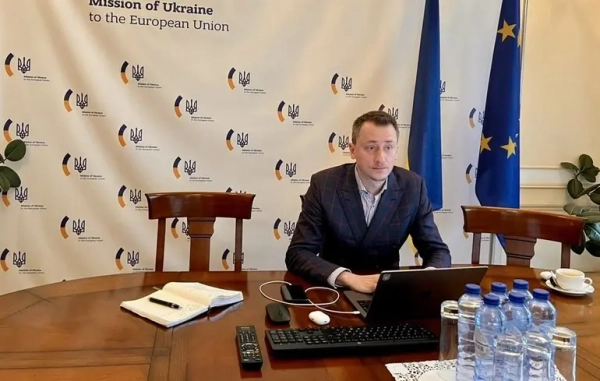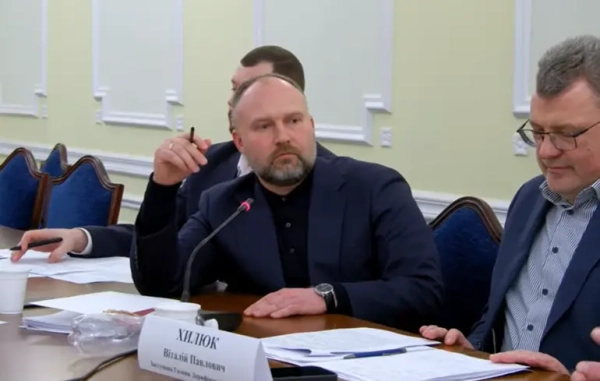
© Alexey Sobolev / Facebook
Minister of Economy of Ukraine Oleksiy Sobolev mentioned that the conversion of NAEK Energoatom into a corporation and the establishment of an oversight council occurred swiftly, and resistance to this was constantly present. He communicated this during a session of the temporary inquiry commission of the Verkhovna Rada concerning extensive corruption within the energy industry.
” There was persistent opposition, without fail . The very individuals presently under scrutiny by NABU in their case were contractors with the ministry, yet we managed to accomplish it,” he stated.
Sobolev reminded that the legislative act that provided additional authority to members of the supervisory board was ratified in May of 2024, and concerning Energoatom, a specific provision dictated that the corporation’s board chairman could be chosen by the whole supervisory board.
With respect to the means of selecting the supervisory board, Sobolev brought up that in June the Cabinet of Ministers endorsed five individuals for the supervisory board, intended to finalize agreements to commence their responsibilities. Concurrently, the provided civil law agreements fell short of their anticipations, instigating drawn-out conversations aimed at modifying them.
“In November, the Cabinet of Ministers gave the nod to the CPA conditions, but in the autumn of 2024, the Ministry of Economy circulated contracts to the supervisory board participants that deviated from those sanctioned by the government. Subsequently, one of the supervisory board members voiced a lack of faith in the administration and filed a resignation. Consequently, a supervisory board comprising four individuals was established,” Sobolev detailed the sequence of events.
The minister further noted that the supervisory board participants established applicable committees and communicated directives to the company’s leadership, yet quite frequently the directives were not carried out by the leadership .
Simultaneously, Oleksiy Sobolev asserted a lack of knowledge concerning the “barrier” scheme at Energoatom, underscoring that the Ministry of Energy served as the relevant authority during the supervisory board formation.
Zheleznyak, in turn, remarked that the commission believes the Energoatom supervisory board was constituted in a way to minimize its activity.
NABU and SAPO uncovered a widespread corruption structure of influence at a prominent level on critical state-operated enterprise entities, notably Energoatom. Its architects accrued 10-15% of the value of corporate agreements as illicit payments, with the “kickbacks” originating from counterparties enforced upon them by scheme participants. In total, the offenders managed to “wash” $100 million, legitimizing funds via a distinct office situated centrally in Kyiv, owned by the family of former MP Andriy Derkach. And it was Timur “Karlson” Mindich who supervised the laundering of money.
As ZN.UA documented, even steadfast opponents of NABU within the intelligence agencies recognize Operation Midas as exceptional. But… Why isn’t the principal figure in the probe, a longstanding acquaintance of the president, Timur Mindich, facing trial in the Supreme Court of Ukraine? Was confidential information about pending investigations divulged? What additional sectors of financial leverage did Mindich manipulate? What elements or persons can impede further investigations? And of utmost importance: what actions should the president undertake, and what course should the nation adopt? Inna Vedernikova explored these issues in her article “Operation Midas. The path of absolute power a dollar long.”
Джерело






